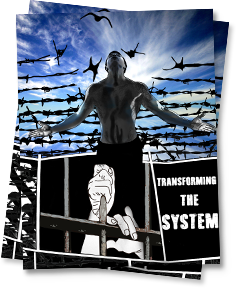Adopting a human rights approach to policing
Policing should be fair and consistent with human rights values. Police departments should strive for positive community relationships. Images of militarized police fueled community outrage about abusive police practices and encouraged the perception that police considered the community its “enemy” during public protests. This perception is unhealthy, and police should aim to eliminate the harms of an unnecessarily militarized police force. Police departments should eliminate militarized tactics that decrease their legitimacy in the communities they serve.
Furthermore, police practices should explicitly seek to eliminate racial bias and disparate treatment of individuals and communities. There has been substantial research demonstrating that implicit bias infuses all parts of our everyday interactions. Consequently, it is important to critically examine our biases and reduce their impact on our ordinary interactions. This is especially the case for police officers because they maintain close community relationships and must ensure that these relationships are positive for their safety and the safety of the community. There should be regular, thorough training to sensitize police to implicit biases as well as explicit bans on racial profiling in police department policies and manuals.
The Congress, and state and local legislatures should pass legislation that:
- Prohibits profiling practices, which include the profiling of individuals due to race, religion, sex, gender, gender identity/expression, age, housing status. sexual orientation, HIV status, ethnicity, sexuality, immigration status, national origin, and religious affiliation;
- Requires officer trainings on the best practices and principles of engaging with community members of different genders, sexualities, and races;
- Requires officer trainings on implicit bias and the value of incorporating human rights practices into policing;
- “Requires current and prospective police officers to undergo mandatory implicit racial bias testing, including testing for bias in shoot/don’t shoot decision-making, and develop a clear policy for considering an officer’s level of racial bias in:
- law enforcement certification
- the hiring process
- performance evaluations
- decisions about whether an officer should be deployed to communities of color”
- Prohibits the local policing of immigration matters, and
- Adopts performance metrics that evaluate police officers based on data that documents demographic information and evaluates officers’ tendency for profiling practices.
- Our Communications Institute Fellow Philip Atiba Goff has written extensively on implicit bias trainings and working with police department to effectuate reforms.
The Department of Justice should:
- Require that law enforcement agencies provide disaggregated demographic data on police interactions with individuals and communities in all funding applications, including data on searches, stops, frisks, searches, summonses, tickets, arrests, and complaints;
- Require that law enforcement agencies seeking funding have policies that explicitly ban biased policing and profiling and provide trainings on reducing officer reliance on profiling; and
- Implement the recommendations of the Law Enforcement Equipment Working Group, including recalling federally-funded military weapons from local police departments.
Congress should:
- Severely limit the transfer and use of military equipment to local law enforcement;
- Adopt and implement the Stop Militarizing Law Enforcement Act of 2015, H.R. 1232, which has been introduced to the House and prohibits the transfer of military equipment that is not suitable for law enforcement purposes by the Department of Defense; and
- Create a mechanism for investigating complaints and issuing sanctions regarding inappropriate use of equipment and tactics during mass demonstrations.
Law enforcement agencies, including local and state police departments, and sheriff’s offices, should create policies that do the following:
- Train all police officers on appropriate community interactions and de-escalation tactics;
- Ensure that police officers employ the practice of explaining to residents what they are doing whenever they act, particularly during an encounter that has occurred as a result of the initiative of the police officer, and especially when communities of color are the target;
- Require that police officers in supervisory roles emphasize protection of human rights by words and actions, leading by example and not tolerating denigrating language or racial/ethnic insensitivities;
- Create early warning systems for detecting patterns of behavior, such as complaints filed against officers or personal hardships like divorce, which indicate potential vulnerabilities for the officer and the department. The primary purpose of such systems is not to punish but to provide counseling to officers so as to reduce their level of risk as well risk to residents and communities;
- Policing administrators should routinely examine their disciplinary procedures in order to improve the overall effectiveness of internal affairs divisions;
- Prohibit the interrogation of individuals with mental health issues and children under the age of 18 without a legal guardian or counsel present;
- Encourage police officers to release people accused of less serious actions, issuing warnings instead of immediately turning to arrest;
- Establish robust pre-booking diversion programs, such as programs that divert individuals to mental health providers, housing referral programs, and drug treatment programs;
- Train police officers to determine when diversion is appropriate and reward police officers who divert individuals from jail;
- Encourage diversion to mental health programs where appropriate;
- Eliminate volume-based performance metrics for police, which may create informal and/or formal arrest quotas;
- Police should be thoroughly trained on the Department of Justice Guidance on Preventing Gender Bias in Law Enforcement and required to follow the guidelines;
- Police leadership should strongly discourage the use of force against pregnant women and children;
- Eliminate programs that call for the wholesale surveillance of profiled communities based on stereotypes, such as the NYPD program that infiltrated and engaged in wholesale surveillance of the Muslim community in New York simply because of their religion; and
- Emphasize the importance of avoiding offensive or harsh language in the field to avoid escalation of minor situations and adopt policies directing officers to speak to individuals with respect.




